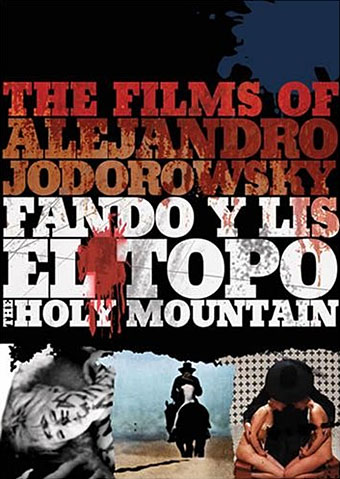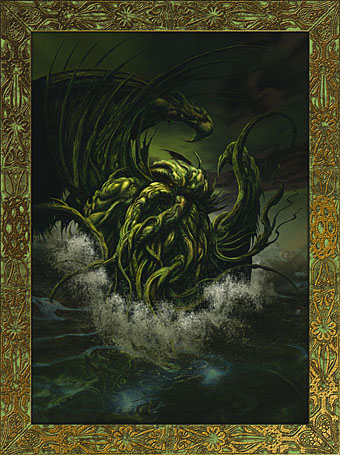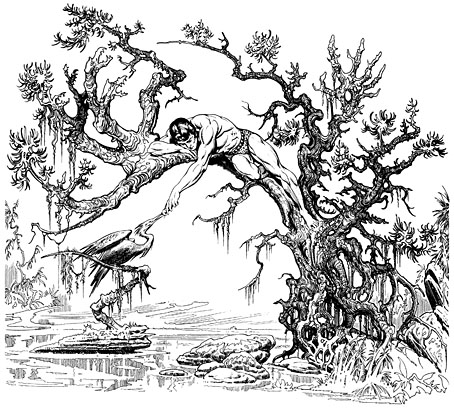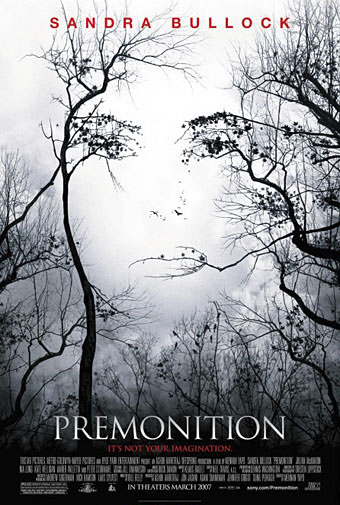Colm Tóibín on Beckett’s Irish Actors.
Great piece about Jack MacGowran and Patrick Magee.
Category: {film}
Film
Meshes of the Afternoon by Maya Deren
Meshes of the Afternoon (1943)
Dir: Maya Deren, Alexander Hammid.
Screenplay: Maya Deren.
Cast: Maya Deren, Alexander Hammid.
Music: Teiji Ito.
18mins, B&W.
Meshes of the Afternoon is one of the most influential works in American experimental cinema. A non-narrative work, it has been identified as a key example of the “trance film,” in which a protagonist appears in a dreamlike state, and where the camera conveys his or her subjective focus. The central figure in Meshes of the Afternoon, played by Deren, is attuned to her unconscious mind and caught in a web of dream events that spill over into reality. Symbolic objects, such as a key and a knife, recur throughout the film; events are open-ended and interrupted. Deren explained that she wanted “to put on film the feeling which a human being experiences about an incident, rather than to record the incident accurately.”
Made by Deren with her husband, cinematographer Alexander Hammid, Meshes of the Afternoon established the independent avant-garde movement in film in the United States, which is known as the New American Cinema. It directly inspired early works by Kenneth Anger, Stan Brakhage, and other major experimental filmmakers. Beautifully shot by Hammid, a leading documentary filmmaker and cameraman in Europe (where he used the surname Hackenschmied) before he moved to New York, the film makes new and startling use of such standard cinematic devices as montage editing and matte shots. Through her extensive writings, lectures, and films, Deren became the preeminent voice of avant-garde cinema in the 1940s and the early 1950s. (MoMA.org)
• Maya Deren at Ubuweb. Includes free film downloads
• Maya Deren at Senses of Cinema
Previously on { feuilleton }
• Jodorowsky on DVD
• Jordan Belson on DVD
• Kenneth Anger on DVD…finally
• Ten films by Oskar Fischinger
• Lapis by James Whitney
• La Villa Santo Sospir by Jean Cocteau
• Expanded Cinema by Gene Youngblood
• The Invasion of Thunderbolt Pagoda
New things for April
Several disparate pieces of news worth mentioning recently, so here they are gathered together.
• Some of my Lovecraft art is to be featured in a lavish limited edition volume from Centipede Press.
Artists Inspired by HP Lovecraft
Centipede Press is now accepting pre-orders.
A unique art book available in a cloth slipcase edition and leather deluxe edition.• Cloth edition in slipcase—2,000 copies—400 pages, four color, sewn with cloth covers, enclosed in a cloth covered slipcase. Front cover image, black embossing, two ribbon markers, fold-outs, detail views.
• The first 300 orders will receive a numbered copy with a special slipcase and a hardcover folder with an extensive suite of unbound illustrations. $395 postpaid.
• Leather edition in traycase—50 copies—400 pages, four color, sewn with full leather binding, enclosed in a giant size traycase. Front cover image debossed on front, two ribbon markers, fold-outs, detail views, signed by most living contributors. $2,000 postpaid.
This huge tome features over forty artists including JK Potter, HR Giger, Raymond Bayless, Ian Miller, Virgil Finlay, Lee Brown Coye, Rowena Morrill, Bob Eggleton, Allen Koszowski, Mike Mignola, Howard V Brown, Michael Whelan, Tim White, John Coulthart, John Holmes, Harry O Morris, Murray Tinkelman, Gabriel, Don Punchatz, Helmut Wenske, John Stewart, and dozens of others.
The field has never seen an art book like this—indeed, it is an art anthology unlike anything ever published before. Many of these works have never before seen publication. Many are printed as special multi-page fold-outs, and several have detail views. The book is filled with four color artwork throughout, all of it printed full page on rich black backgrounds. A special thumbnail gallery allows you to overview the entire contents of this 400-page book at a glance, with notations on artist, work title, publication information, size, and location, when known.
HP Lovecraft fans will simply have to have this book. Because of its sheer size and scope, this book will never be reprinted and will sell out very quickly. Twenty years down the road people will be paying huge prices for this book because of its scope and the quality of reproductions. This is the HP Lovecraft fan’s dream come true. Don’t miss it!
Yes, it is indeed expensive but this is a book for serious collectors.
• Bryan Talbot‘s new book, Alice in Sunderland, is finally out. Read a review of it here.
• Arthur Magazine is being summoned back from Avalon, which is excellent news. To celebrate, Jay Babcock has posted Alan Moore‘s history of pornography in its entirety here.
left to right: Donald Cammell, Dennis Hopper, Alejandro Jodorowsky & Kenneth Anger.
One of my favourite photographs of all time shows four directors at the Cannes Film Festival in 1971, all dolled up in their wildest afghan-and-ascot, hairy-hippy finery, and all of them on the cusp of what should have been majestic, transformative, transgressive careers in cinema that by and large never came to fruition. It was not to be—if only it had been.
• John Patterson tell you why we need Jodorowsky as much as we ever did.
Update: And while we’re at it, Eddie Campbell also has a new book out, The Black Diamond Detective Agency. Great playbill cover design.
A premonition of Premonition
Jungle Tales of Tarzan by Burne Hogarth (Watson-Guptill, 1976).
Premonition (Sony Pictures, 2007).
And multiple works by Salvador Dalí…
Previously on { feuilleton }
• L’Amour Fou: Surrealism and Design
• Perfume: the art of scent
• Metropolis posters
• Film noir posters
Jodorowsky on DVD

I am an artist. Now the pictures are not made by artists. They are made by companies and produced by multinationals. The art in the picture is lost. Now when artists make pictures, they make them for museums. But museums, for me, are cemeteries.
Alejandro Jodorowsky.
More from the About-Bleeding-Time Dept. (emphasis on “bleeding” in this case). Some of the most extraordinary films ever made finally receive an authorised DVD release in May.
Anchor Bay will release a special limited edition collector’s box set, The Films of Alejandro Jodorowsky, on DVD on 5/1/2007 (SRP $49.98). The set will contain El Topo, The Holy Mountain and Fando Y Lis on DVD, fully restored and remastered from new HD transfers in anamorphic widescreen video, with Dolby Digital 5.1 and 2.0 audio (El Topo is 125 minutes in Spanish, The Holy Mountain is 114 minutes in English, Fando Y Lis is 93 minutes in Spanish). The box set will also include 2 music CDs containing the soundtracks for El Topo and The Holy Mountain, as well as a DVD of Jodorowsky’s never-before-released first film, La Cravate. El Topo and The Holy Mountain will also be available separately (SRP $24.98 each). The El Topo DVD will contain audio commentary by the director, the original theatrical trailer (with English voice-over), a 2006 on-camera interview with the director as well as an exclusive new interview, a photo gallery and original script excerpts. The Holy Mountain DVD will include audio commentary with the director, deleted scenes with commentary, the original theatrical trailer (with English voice-over), the Tarot short with commentary, a restoration process short, restoration credits, a photo gallery and original script excerpts. Fando Y Lis will include audio commentary with the director and the La Constellation Jodorowsky documentary. Subtitles on the discs will be available in English, French, Spanish and Brazilian Portuguese.
• Jodorowsky’s official site (in Spanish)
• Jodorowsky discusses the new releases with Premiere Magazine
• Jay interviews Jodo: Mean Magazine | LA Weekly
Previously on { feuilleton }
• Jordan Belson on DVD
• Further back and faster
• Kenneth Anger on DVD…finally
• The Brothers Quay on DVD
• El Topo
• Gangsters on DVD
• Blade Runner DVD
• The Invasion of Thunderbolt Pagoda





